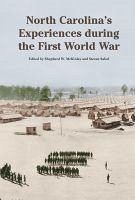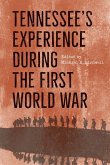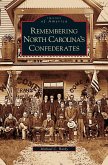As America's involvement in World War I approached its centennial, state-level histories and commemoration of the Great War abounded. While North Carolina's role in the First World War has yet to attract such intense scholarly interest, a much-needed picture of the wartime Tar Heel state has nevertheless begun to emerge from newly published firsthand accounts of the war and sustained attention to the state's wartime politicians. The essays in North Carolina's Experience during the First World War, skillfully edited by Shepherd W. McKinley and Steven Sabol, provide in-depth interpretation of the state's involvement in WWI. As topics range from soldiers and the military, to women and the home front, to politics and labor issues, a detailed picture emerges of the war's influence on the developing modern state and the ascendant bureaucratic social order. As this anthology makes clear, wars provide the opportunity for unsettling old patterns of power and culture. Unlike the Civil War and Second World War, however, the First World War would have relatively little effect on North Carolina's race relations, class arrangements, gender roles, economic order, and political leadership. What changed more dramatically was the relationship between business and government. Indeed, government took an unprecedented place in the fabric of society and the economy as the "war to end all wars" left its indelible mark on the individuals and families who served. SHEPHERD W. MCKINLEY is a senior lecturer in the Department of History at the University of North Carolina at Charlotte. He is the author of Stinking Stones and Rocks of Gold: Phosphate, Fertilizer, and Industrialization in Postbellum South Carolina and North Carolina: New Directions for an Old Land. STEVEN SABOL is an associate professor of history at the University of North Carolina at Charlotte. He is the author of Russian Colonization and the Genesis of Kazak National Consciousness.
Hinweis: Dieser Artikel kann nur an eine deutsche Lieferadresse ausgeliefert werden.
Hinweis: Dieser Artikel kann nur an eine deutsche Lieferadresse ausgeliefert werden.








